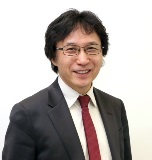
| 講演者 | Jang-Sup Shin氏 (シンガポール国立大学経済学部・准教授) |
|---|---|
| 日時 | 2014年12月15日(月) 18時30分~20時30分 (18時10分受付開始) |
| 場所 | 政策研究大学院大学 4階 研究会室4A (東京都港区六本木7-22-1)(アクセス) |
| 主催 | 政策研究大学院大学科学技術イノベーション政策プログラム(GIST) |
| 言語 | 英語 |
| 参加費 | 無料(事前登録制) |
| 資料 | 発表資料(1.7M) |
It has been commonly accepted that Japan had "lost decades" after the crash of the Tokyo Stock Exchange in 1990 while Korea underwent a successful economic restructuring after the 1997-98 Asian financial crisis. However, Korean is now facing rapid economic slowdown and it appears that it is catching up with Japan in its economic stagnation. This research investigates underlying reasons for the imminent convergence of economic performance between the two countries away from the seemingly divergent performance between the two in the 2000s. By grouping views on the Japan's stagnation into (1) the structuralist view, (2) the balance sheet recession view, and (3) the population bottleneck view, the research attempts to make a systematic comparison of the causes of growth slowdown in the two countries. It also assesses the validity of the 'Abenomics' and 'Choi-nomics' as policy responses to their (imminent) economic stagnation.
 grips.ac.jp宛てにメールにてお申し込みください。
grips.ac.jp宛てにメールにてお申し込みください。